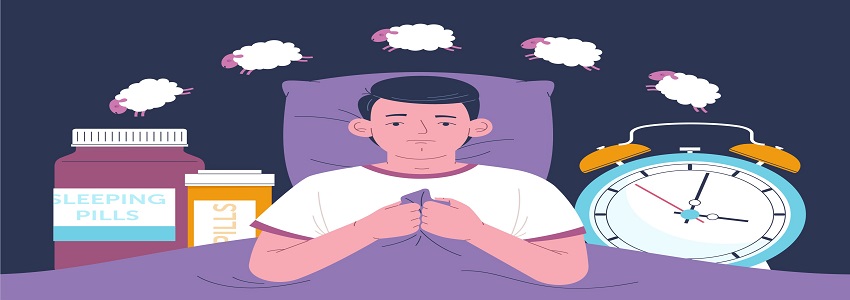Sleep is a fundamental pillar of health, influencing cognitive function, emotional well-being, and physical vitality. As scientific research advances, we are uncovering new insights into the mechanisms of sleep, its impact on the body, and the technologies revolutionizing sleep health. In the modern age—where stress, digital distractions, and lifestyle changes disrupt sleep patterns—understanding these advancements is crucial to improving overall well-being.
The Science Behind Sleep Cycles
Sleep occurs in distinct stages, each playing a vital role in restoration and recovery. Researchers have refined our understanding of the four primary sleep stages:
-
Stage 1 (Light Sleep): The transition phase between wakefulness and sleep, lasting only a few minutes.
-
Stage 2 (Deeper Sleep): Heart rate slows, body temperature drops, and memory consolidation begins.
-
Stage 3 (Deep Sleep): Also known as slow-wave sleep, this stage is essential for physical recovery, immune function, and cell regeneration.
-
REM (Rapid Eye Movement) Sleep: The dreaming stage, crucial for emotional processing, learning, and creativity.
Recent research suggests that disruptions to deep sleep and REM sleep can impair cognitive function, weaken immunity, and increase susceptibility to conditions like anxiety and depression.
Circadian Rhythms and Their Influence on Sleep
Circadian rhythms—our internal biological clocks—regulate sleep-wake cycles. These rhythms are primarily influenced by light exposure, dictating when we feel alert or tired. However, modern lifestyles have introduced new challenges, such as:
-
Artificial lighting and screen exposure delaying melatonin production.
-
Irregular sleep schedules disrupting the body’s natural rhythms.
-
Stress and lifestyle factors interfering with sleep patterns.
To combat circadian rhythm disruptions, researchers emphasize light management, encouraging natural sunlight exposure during the day and minimizing blue light at night. Technologies such as smart lighting systems and blue-light-filtering devices are aiding individuals in maintaining healthier sleep cycles.
Sleep and Brain Health
Sleep plays a crucial role in cognitive function, memory retention, and emotional regulation. Recent neurological studies have revealed that during sleep, the brain undergoes a “cleansing” process—known as the glymphatic system—which removes toxins and waste products accumulated throughout the day.
Disruptions in sleep have been linked to increased risks of neurodegenerative diseases such as Alzheimer’s and Parkinson’s. Researchers are now investigating how optimizing sleep can potentially slow cognitive decline, improve mental resilience, and enhance overall brain health.
Technology’s Role in Sleep Optimization
With advancements in artificial intelligence and wearable technology, monitoring sleep patterns has become more precise. Smart sleep devices track variables like heart rate, breathing patterns, and movement, providing users with actionable insights to improve sleep quality. Key innovations include:
-
Wearable sleep trackers analyzing sleep cycles and identifying disturbances.
-
Smart mattresses and pillows adjusting firmness and temperature for optimal comfort.
-
AI-driven sleep apps offering guided meditations, white noise, and personalized sleep recommendations.
These technologies are transforming sleep science, providing individuals with real-time feedback to enhance their nightly rest.
The Future of Sleep Science
Looking ahead, sleep research is delving into groundbreaking areas such as:
-
Pharmaceutical advancements, including precision sleep medications tailored to individual biology.
-
Neurological stimulation devices, which use brainwave modulation to enhance sleep depth.
-
Personalized sleep interventions, leveraging genetic profiling to optimize rest.
As these developments unfold, the future of sleep science holds promising solutions for both common sleep disorders and overall well-being.



